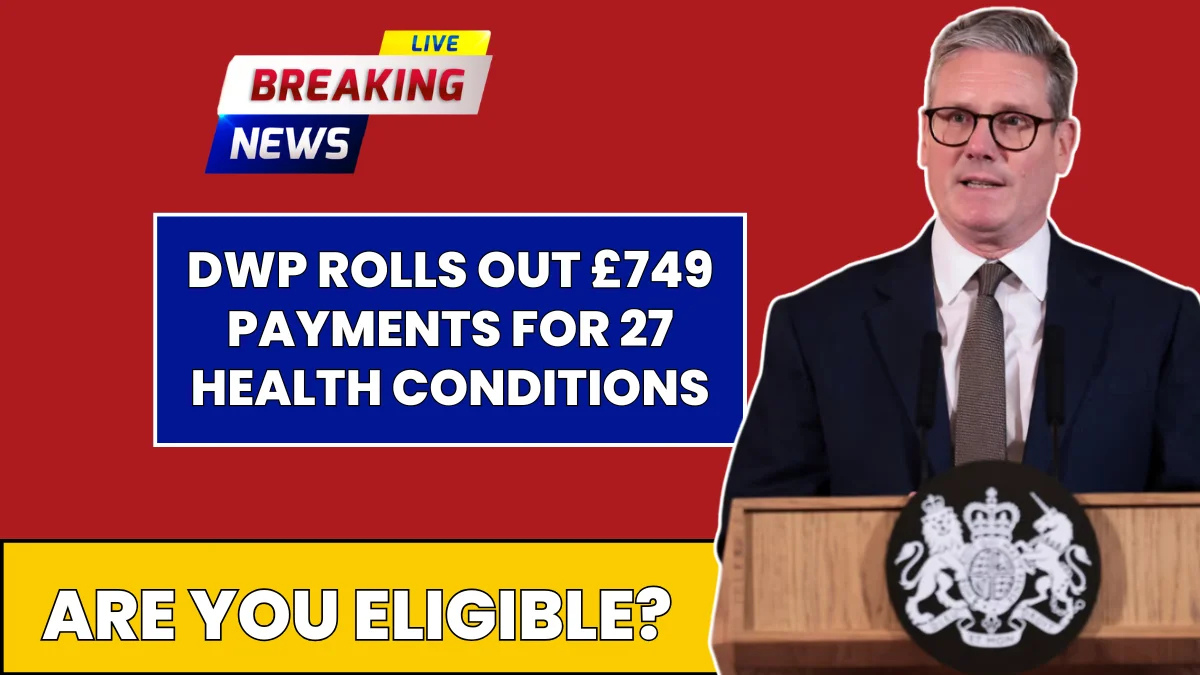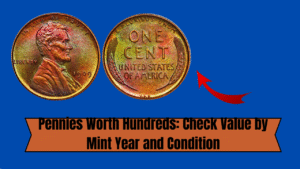If you’re living with a long-term health condition or disability, even simple daily tasks can feel like climbing a mountain. Whether it’s difficulty walking, cooking meals, remembering to take medication, or even just getting dressed—these challenges aren’t just physical, they’re emotional and financial too.
Recognising this, the UK government has stepped in with a helpful financial measure. The Department for Work and Pensions (DWP) recently announced a £749 payment aimed at individuals who are living with one or more of 27 specific health conditions. This support is tied to the Personal Independence Payment (PIP)—a benefit designed to support those who need help managing the daily impact of their medical conditions.
So, what is this payment all about? Who qualifies? How do you apply? And what steps can you take if the process feels overwhelming?
Let’s walk through everything together so you feel confident about how to get the support you may be entitled to.
What Is the £749 Payment and Who Is It For?
First things first—this isn’t a new ongoing benefit or something that’s paid to everyone with a disability. Instead, this £749 is a one-time, additional support payment that may be available only to certain people already receiving or applying for PIP, and whose health condition significantly impacts their daily life and mobility.
It’s designed to act as a cushion for those who need enhanced levels of support to live independently or manage essential daily tasks.
What Is Personal Independence Payment (PIP)?

Before we get into the payment itself, let’s briefly explain PIP.
PIP is a benefit provided by the government to people aged 16 or older who have long-term physical or mental health conditions or disabilities. Unlike Employment and Support Allowance (ESA) or Universal Credit, PIP isn’t about whether you can work. Instead, it’s focused on how your condition affects your ability to live day-to-day and move around.
PIP is made up of two parts:
- Daily Living Component – for help with everyday tasks like preparing meals, bathing, dressing, and managing medications.
- Mobility Component – for help with getting around, whether it’s walking short distances or navigating unfamiliar routes.
Each component has a standard rate and an enhanced rate, depending on how much assistance you need.
Current PIP Rates (2024–2025):
| Component | Standard Rate | Enhanced Rate |
|---|---|---|
| Daily Living | £72.65/week | £108.55/week |
| Mobility | £28.70/week | £75.75/week |
These are regular payments, issued every four weeks. But the £749 payment is an extra one-off payment that may be awarded on top of your existing PIP if your needs meet certain criteria.
Who Is Eligible for the £749 Payment?
You may qualify for this additional support if:
- You have one of 27 specific health conditions (see categories below)
- You receive enhanced PIP payments for both daily living and mobility
- Your condition significantly impacts your ability to live independently and move around
It’s important to note: having the condition alone does not guarantee you’ll get the payment. What really matters is how severely your condition affects your life.
The 27 Health Conditions That May Qualify You
The DWP has grouped the 27 conditions into categories. These include:
1. Respiratory Conditions:
- Asthma (severe and persistent)
- Chronic Obstructive Pulmonary Disease (COPD)
- Pulmonary Fibrosis
These conditions can affect your ability to breathe, carry out physical activities, or even sleep comfortably. For example, someone with severe asthma may need help with cooking due to poor lung capacity, or may require constant supervision during the night.
2. Neurological Conditions:
- Epilepsy
- Parkinson’s Disease
- Multiple Sclerosis (MS)
If you experience regular seizures or progressive neurological decline, everyday tasks can become dangerous or impossible without support.
3. Infectious and Chronic Conditions:
- Pneumonia (chronic)
- Sarcoidosis
- Chronic Fatigue Syndrome (CFS/ME)
These can cause severe fatigue, joint pain, and breathing issues—often leaving sufferers bedridden or requiring help for basic self-care.
4. Occupational Diseases:
- Asbestosis
- Silicosis
These conditions are typically contracted in specific job environments, and often result in long-term respiratory or physical complications.
5. Organ-Related Issues:
- Heart Transplant
- Lung Transplant
- Severe Heart Failure
Transplant patients often need help managing medications, avoiding infection, and handling mobility-related challenges.
How Does the DWP Decide If You’re Eligible?

To determine eligibility, the DWP uses a structured assessment process. You’ll be asked about how your condition affects:
- Your ability to carry out daily activities (like getting dressed, cooking, or handling money)
- Your mobility (can you walk 20 metres safely? Do you need a wheelchair?)
You’ll usually have to attend an assessment—either in person, via phone, or through video call—where a trained health professional will go over your condition, your daily routine, and your limitations.
Based on the findings, they’ll assign points. If your total points meet the criteria for enhanced rates in both components, you may be offered the £749 payment as additional support.
How Do You Apply for PIP and the £749 Payment?
Let’s break the process down step by step:
1. Check Your Condition:
Make sure your health condition aligns with one of the 27 listed by the DWP. If your condition isn’t specifically named but causes similar levels of difficulty, you may still qualify—so don’t rule yourself out.
2. Gather Medical Evidence:
This includes:
- Doctor’s letters or notes
- Hospital discharge summaries
- Test results or scans
- Statements from occupational therapists, carers, or support workers
The more detailed, the better. Evidence showing how your condition impacts your daily life is key.
3. Submit an Application:
You can apply for PIP:
- Online at www.gov.uk/pip
- By phone by calling the DWP
- By post, using a paper application
Once the application is received, you’ll get a ‘How Your Disability Affects You’ form to fill out. Be honest and thorough when describing your daily challenges.
4. Attend an Assessment:
Expect to talk about:
- How you manage personal hygiene
- Whether you can prepare meals safely
- If you need help using public transport or walking
Bring your documents and any assistive devices (like inhalers, walking aids, or medication).
5. Wait for a Decision:
The DWP will send you a decision letter. If you are approved for both enhanced components of PIP, you may also see the £749 payment reflected in your bank account.
Real-Life Example: Meet John
Take John, for example. He’s a 57-year-old former factory worker diagnosed with COPD. He can’t walk more than 10 metres without needing to rest. Cooking is difficult because steam and heat from the stove worsen his breathing. He also needs daily medication and help with personal care.
After submitting his application, gathering evidence from his GP and attending his assessment, John was awarded enhanced daily living and mobility PIP components. Within weeks, he received a one-off £749 payment, which he used to purchase a stair lift and cover heating bills.
Why Some Received Early Payments in May
Some people may have already seen this payment appear in their bank accounts a few days early in May 2024, especially if their review or payment period coincided with the May Bank Holiday. To prevent delays, the DWP processed some payments earlier than usual.
Feeling Overwhelmed? Help Is Availabl
If the paperwork or the assessment process feels intimidating, you are not alone. There are several organisations ready to help you, free of charge:
- Citizens Advice: Offers local face-to-face and phone support
- Disability Rights UK: Provides online resources and advocacy
- Welfare Rights Advisors: Many local councils have specialists who can guide you through the application process or even attend your assessment with you
Other Support You Might Be Missing Out
Besides PIP and the £749 payment, you may also qualify for:
- Disability Living Allowance (DLA) – for children under 16 with disabilities
- Employment and Support Allowance (ESA) – if your illness prevents you from working
- Universal Credit – especially with the additional disability elements
- Council Tax Reduction
- Warm Home Discount or Winter Fuel Payment
- Free public transport or Carer’s Allowance (if someone helps care for you)
Final Thoughts:
Living with a long-term condition is hard enough—navigating government support shouldn’t make it harder. The £749 payment is a meaningful form of relief for those facing daily struggles due to serious health challenges.
If you think you might be eligible, don’t wait. Start by checking the condition list, gathering your documents, and applying for PIP. Whether you’re applying for the first time or updating your claim, this could be the extra support that makes a real difference.
FAQs
1. What is the £749 payment from the DWP?
This is a one-time payment introduced by the Department for Work and Pensions (DWP) in the UK to support individuals living with certain long-term health conditions.
2. Who is eligible for the £749 payment?
People diagnosed with one or more of the 27 specified health conditions may qualify. These include both physical and mental conditions that significantly impact daily living or mobility.
3. What are some of the qualifying health conditions?
Conditions may include arthritis, epilepsy, multiple sclerosis, chronic obstructive pulmonary disease (COPD), Parkinson’s disease, and others listed by the DWP. A full list is usually published on GOV.UK or official DWP communications.
4. Do I need to apply to receive this payment?
No separate application is needed if you are already receiving disability-related benefits like Personal Independence Payment (PIP), Attendance Allowance, or Disability Living Allowance (DLA) and meet the medical eligibility criteria.
5. Will everyone with a listed health condition automatically get the payment?
Not necessarily. Eligibility is also based on the severity of the condition and its impact on your daily life. The DWP uses assessment criteria from existing benefits (like PIP) to decide.


